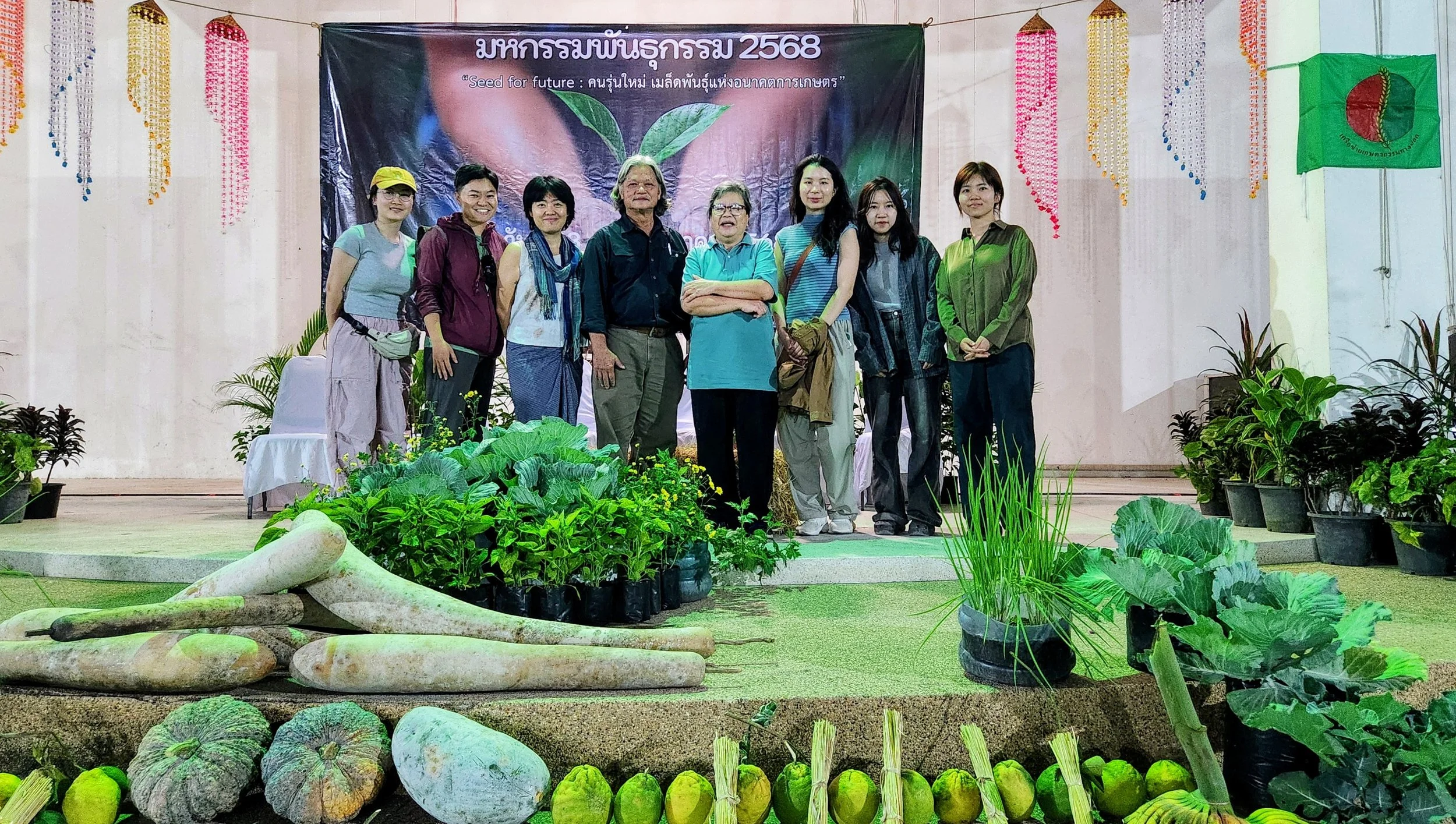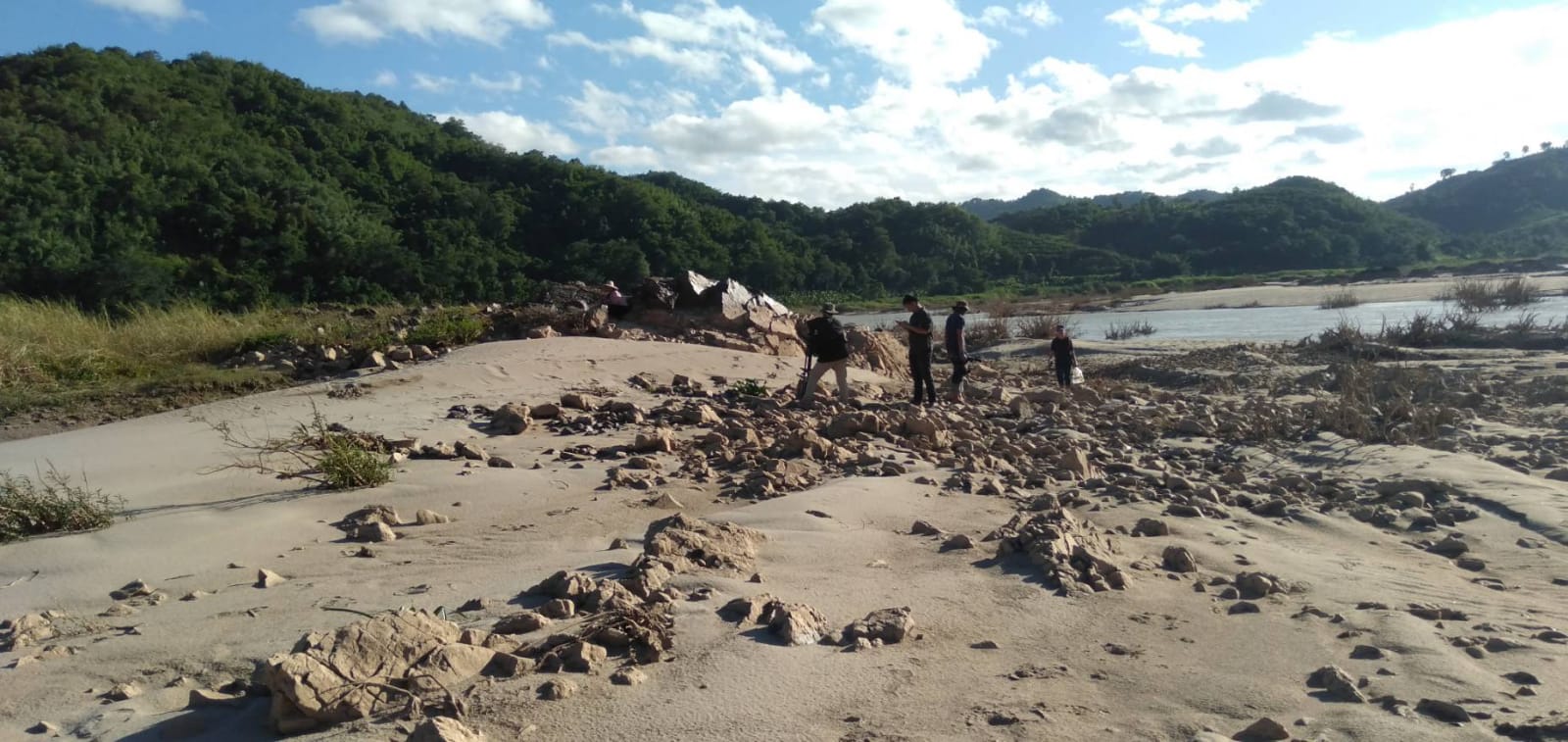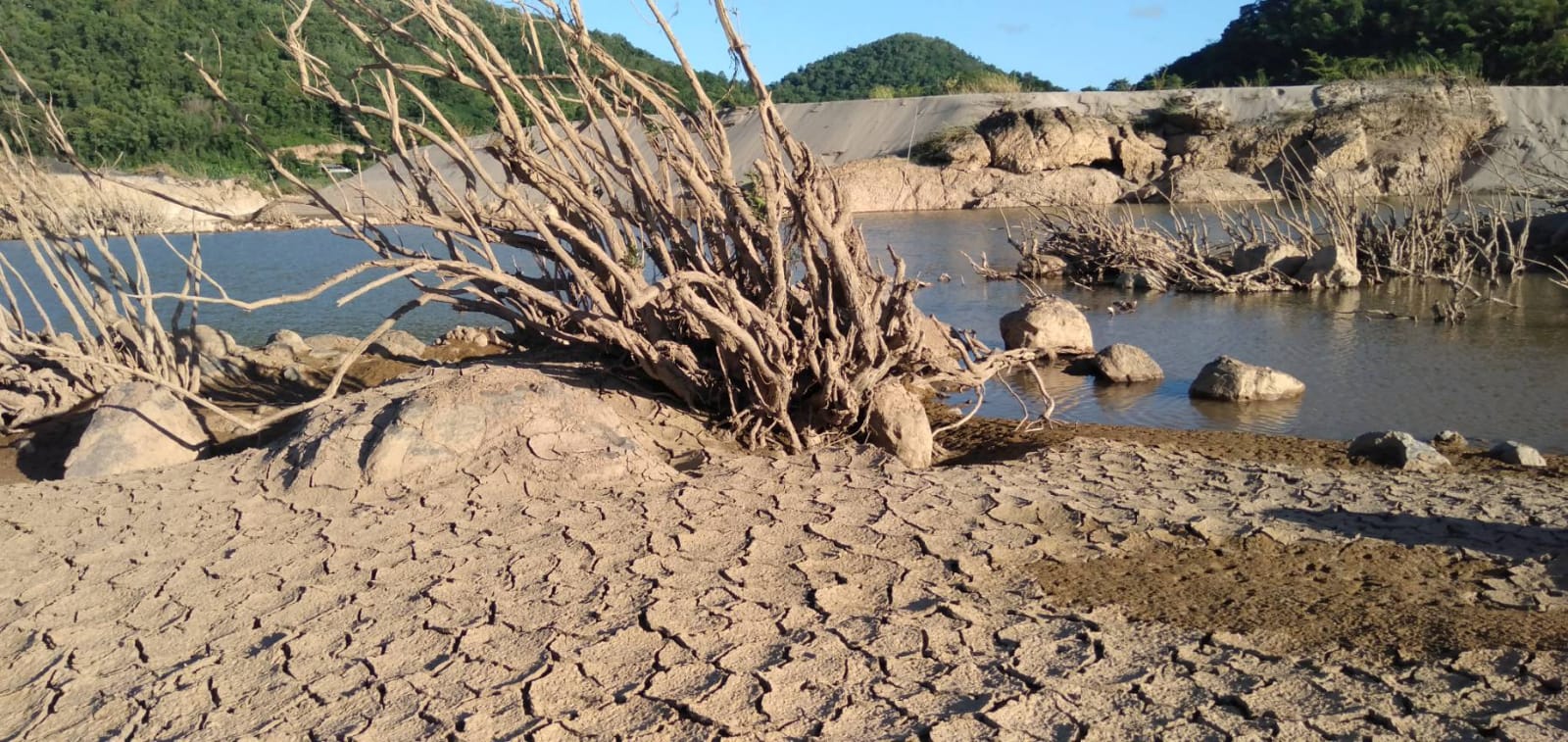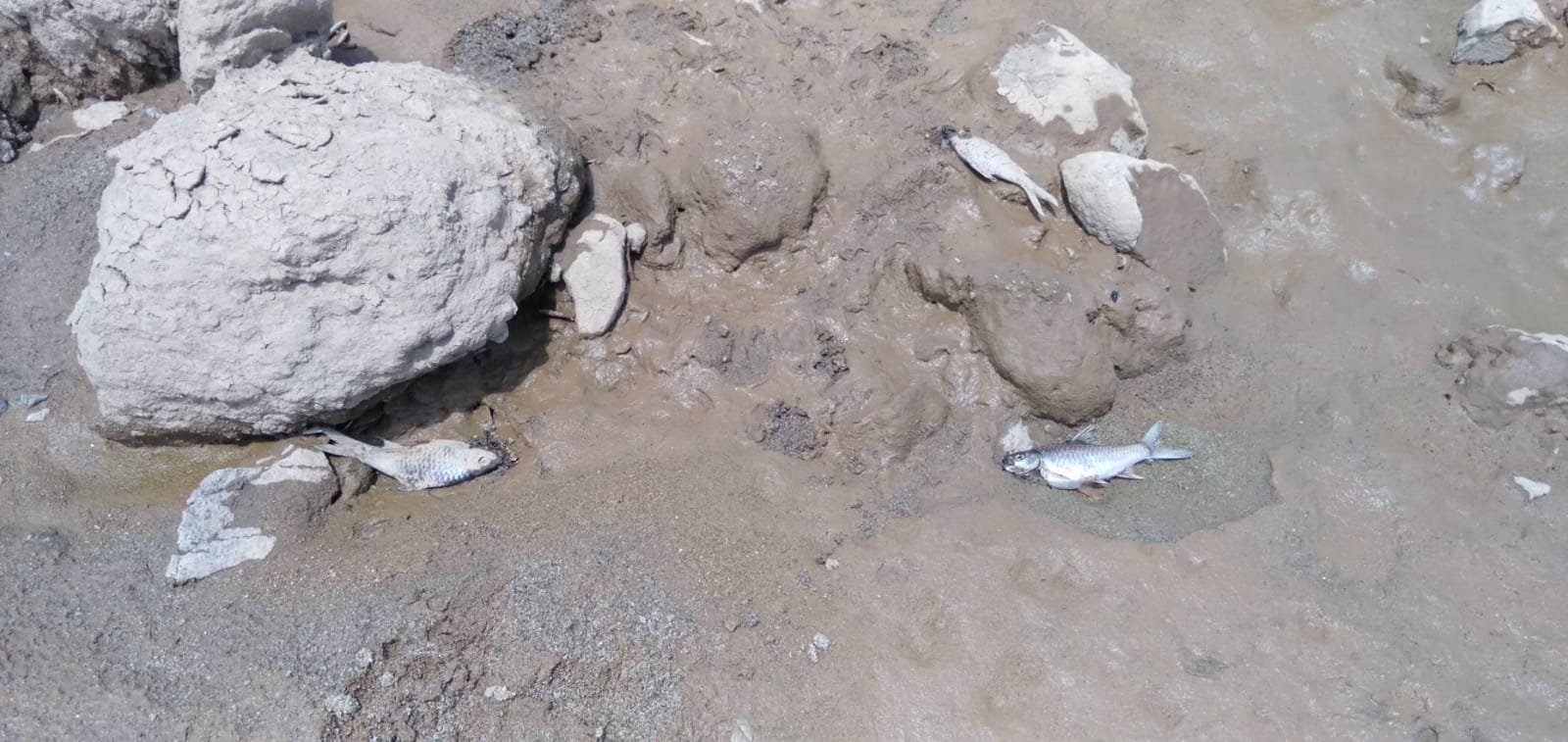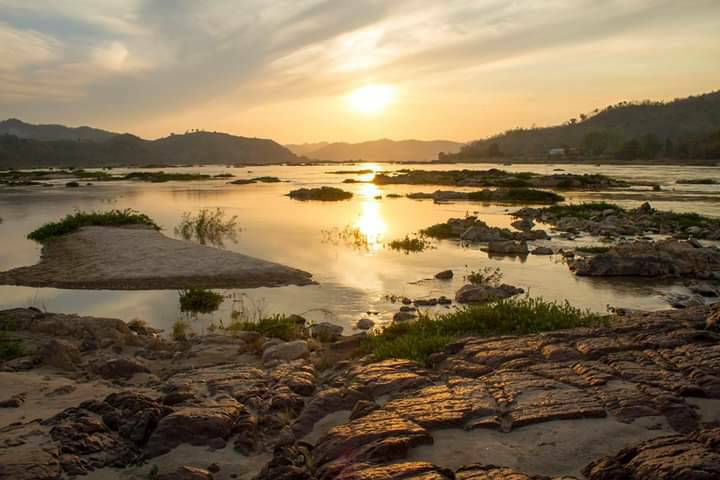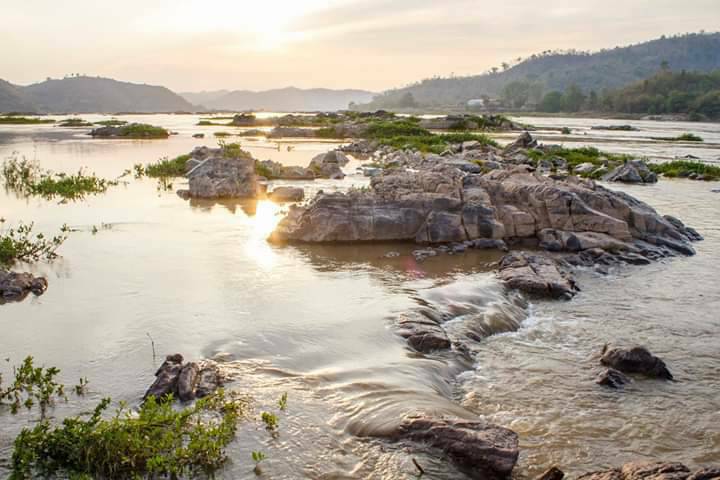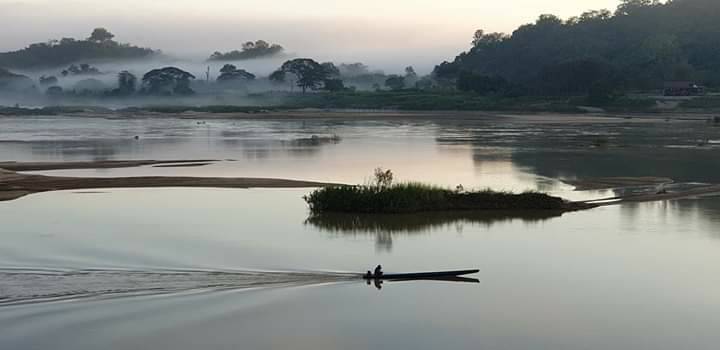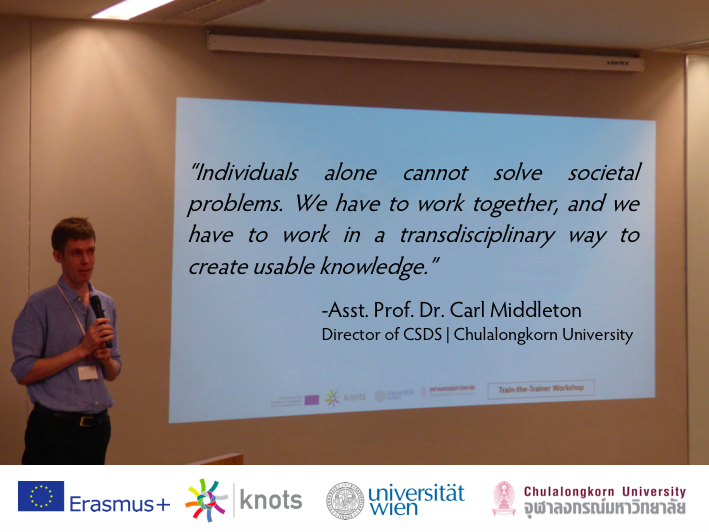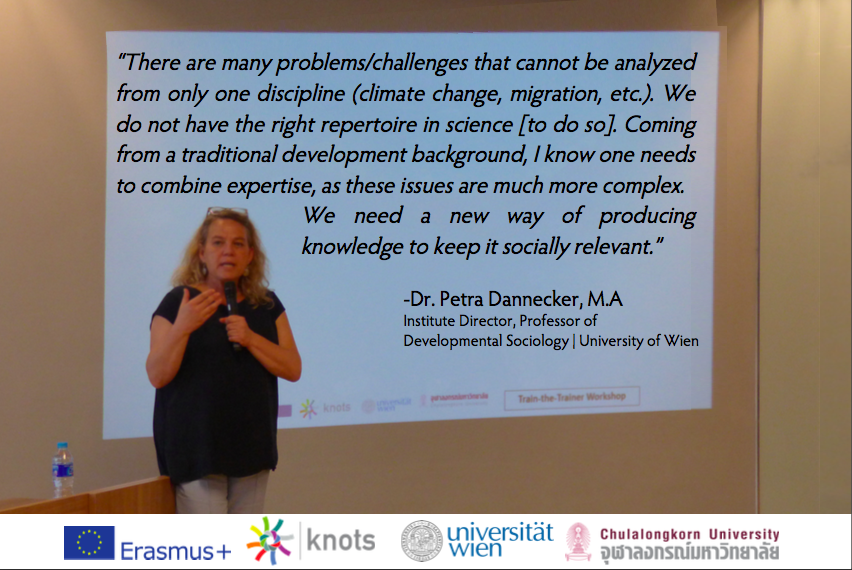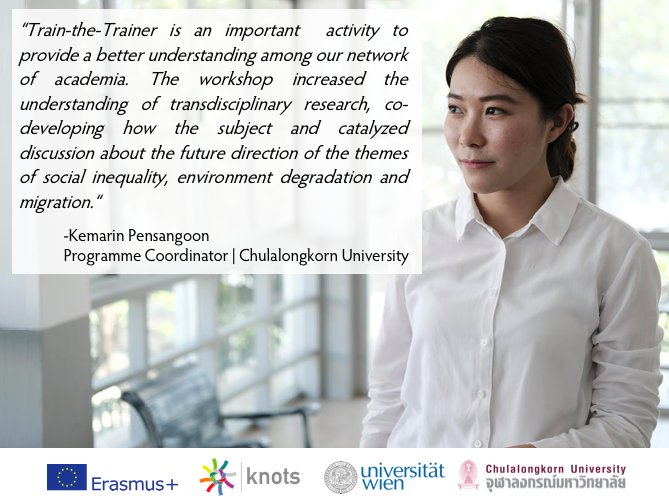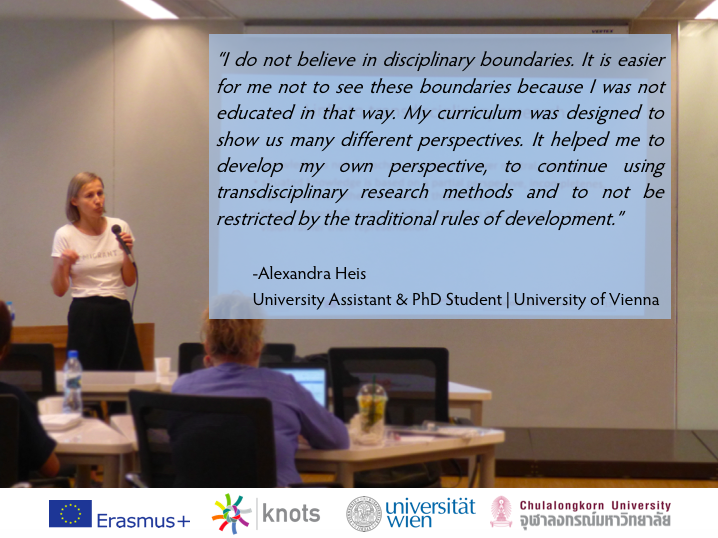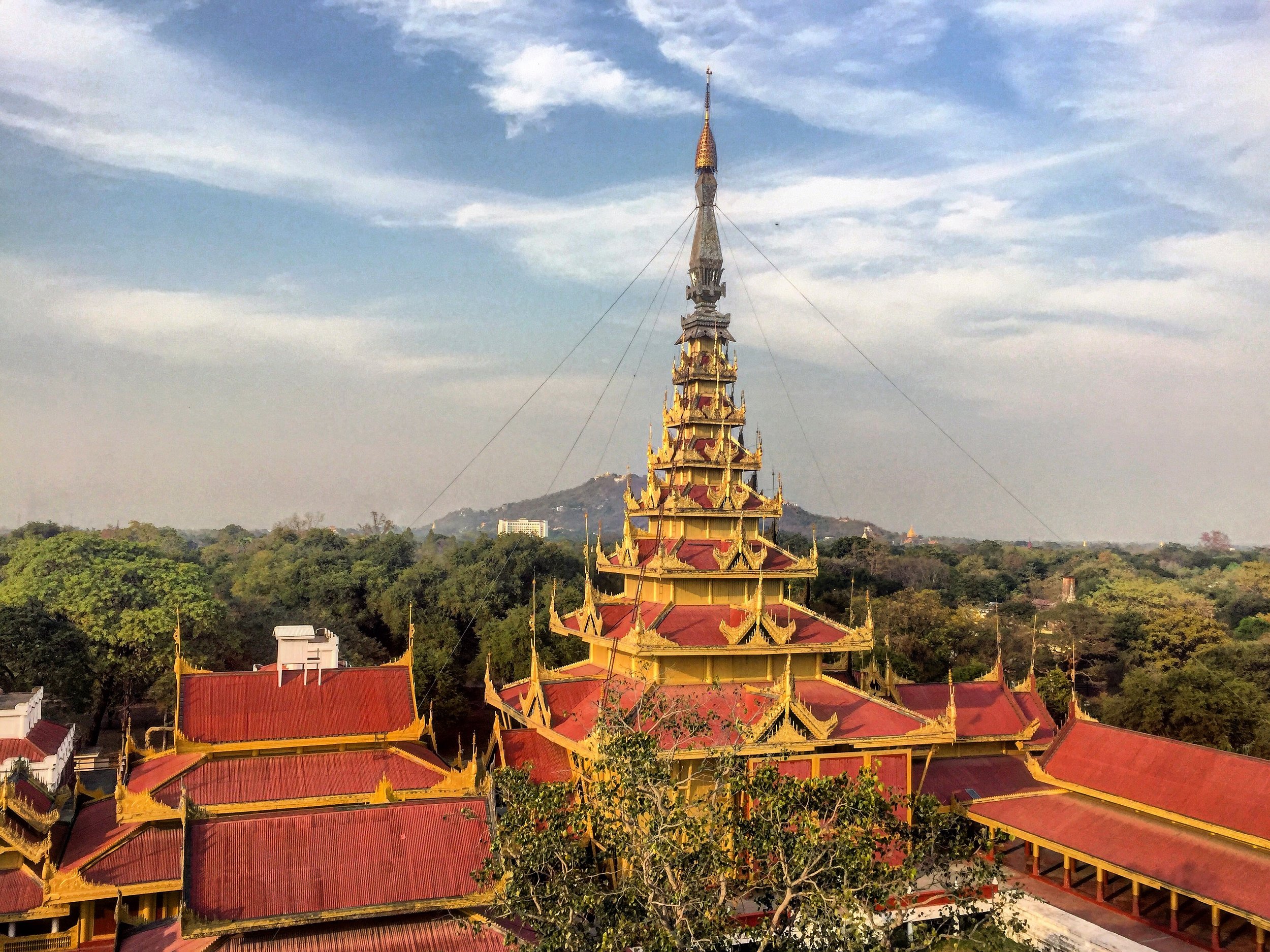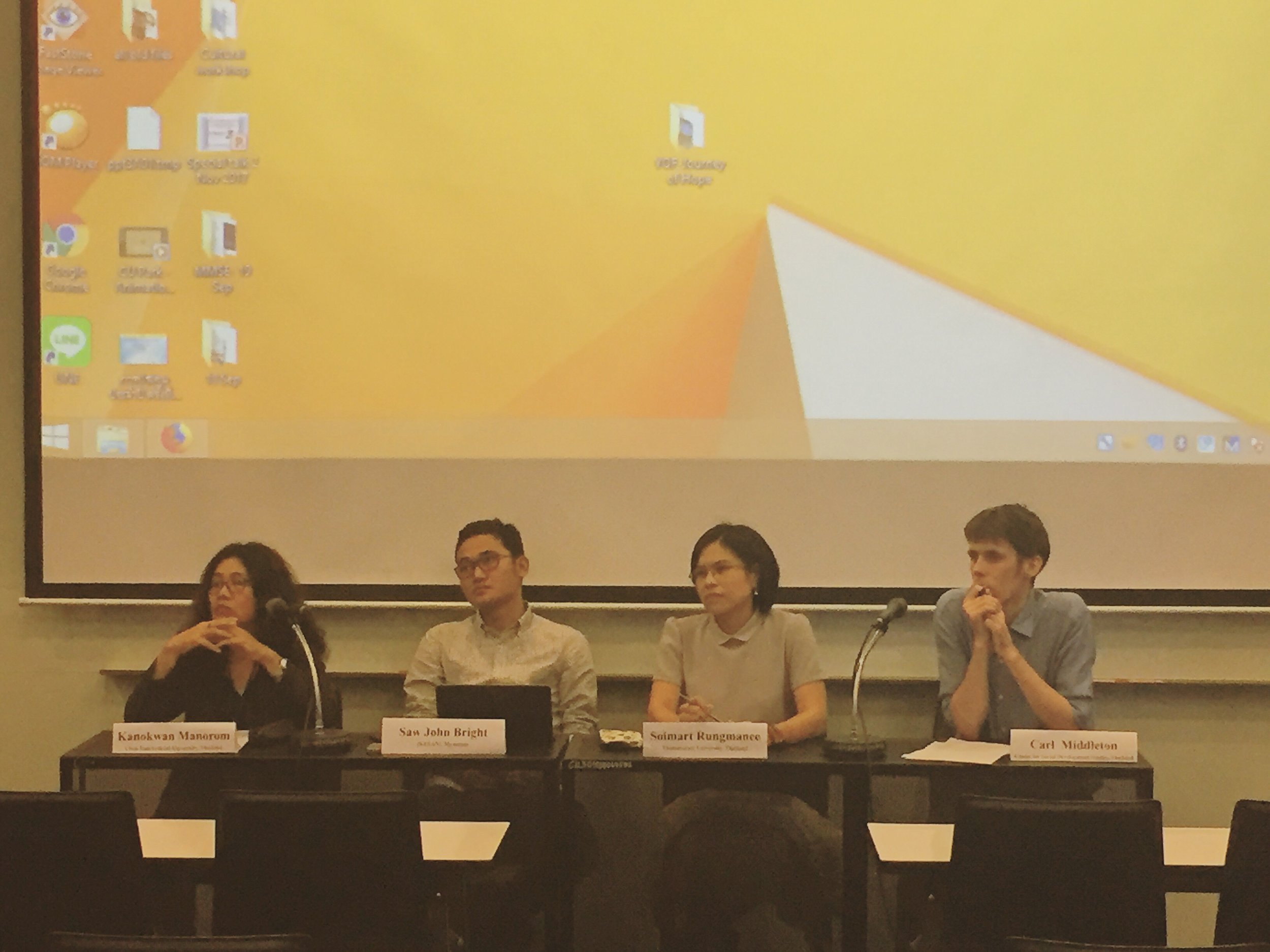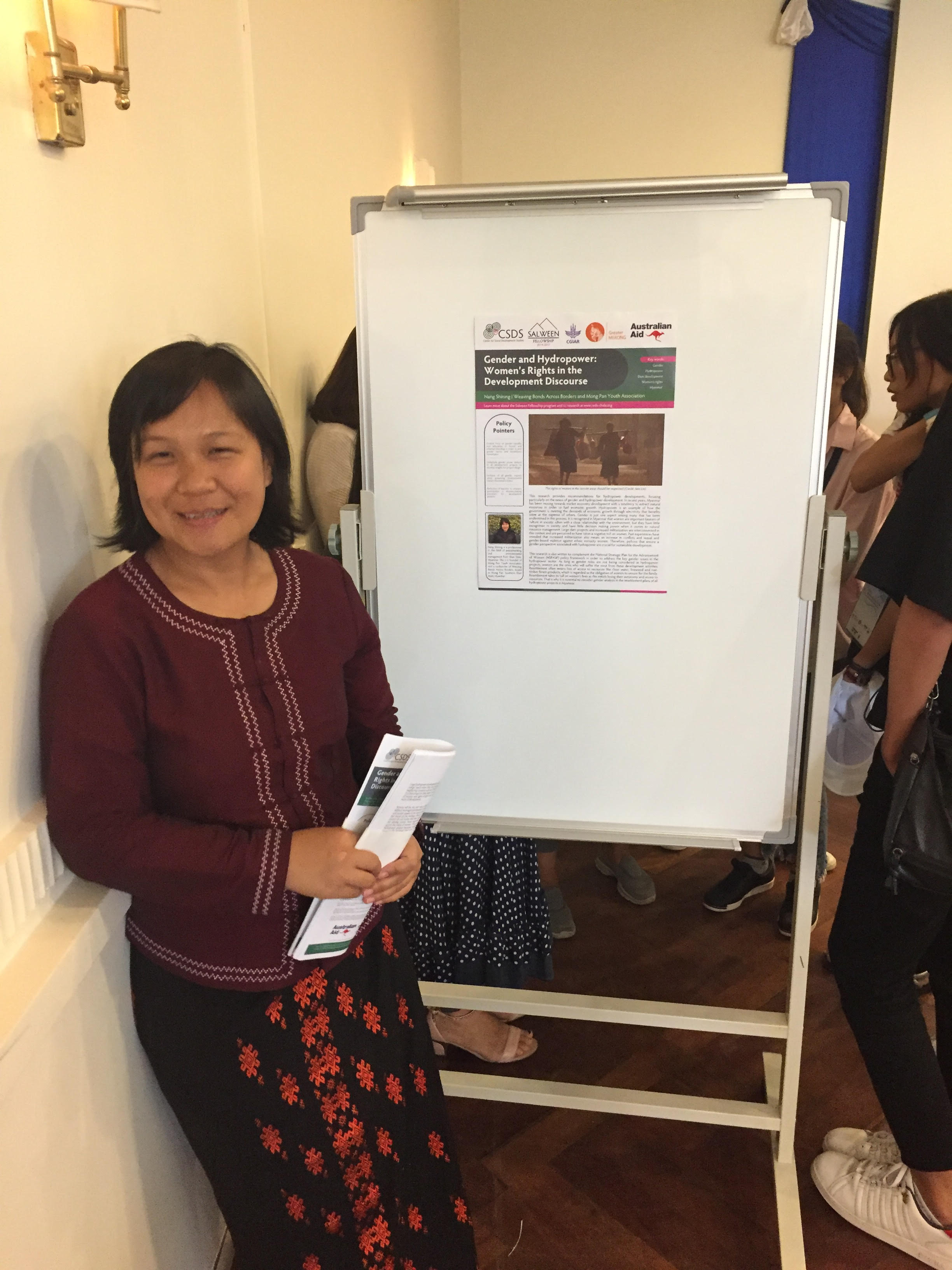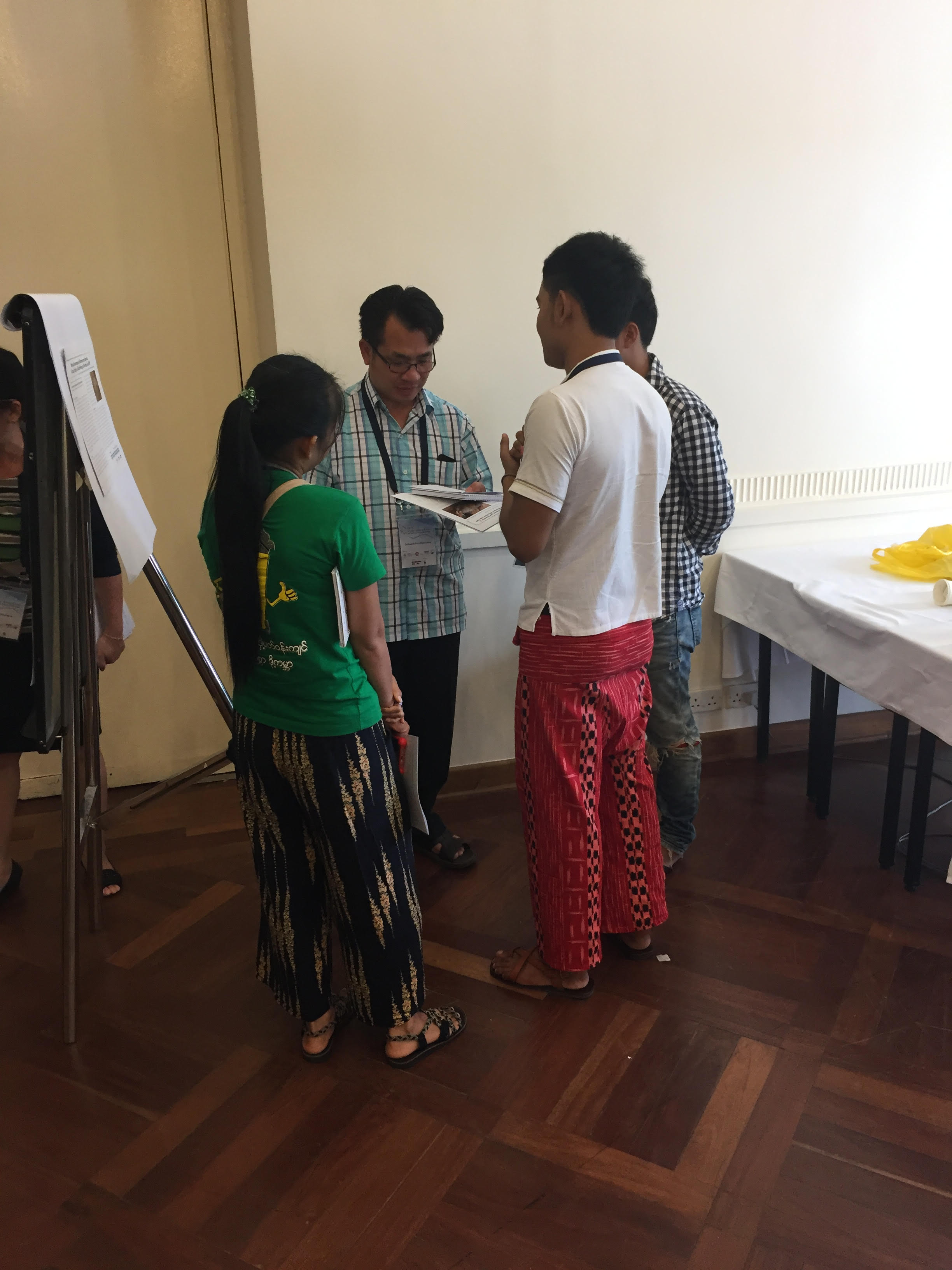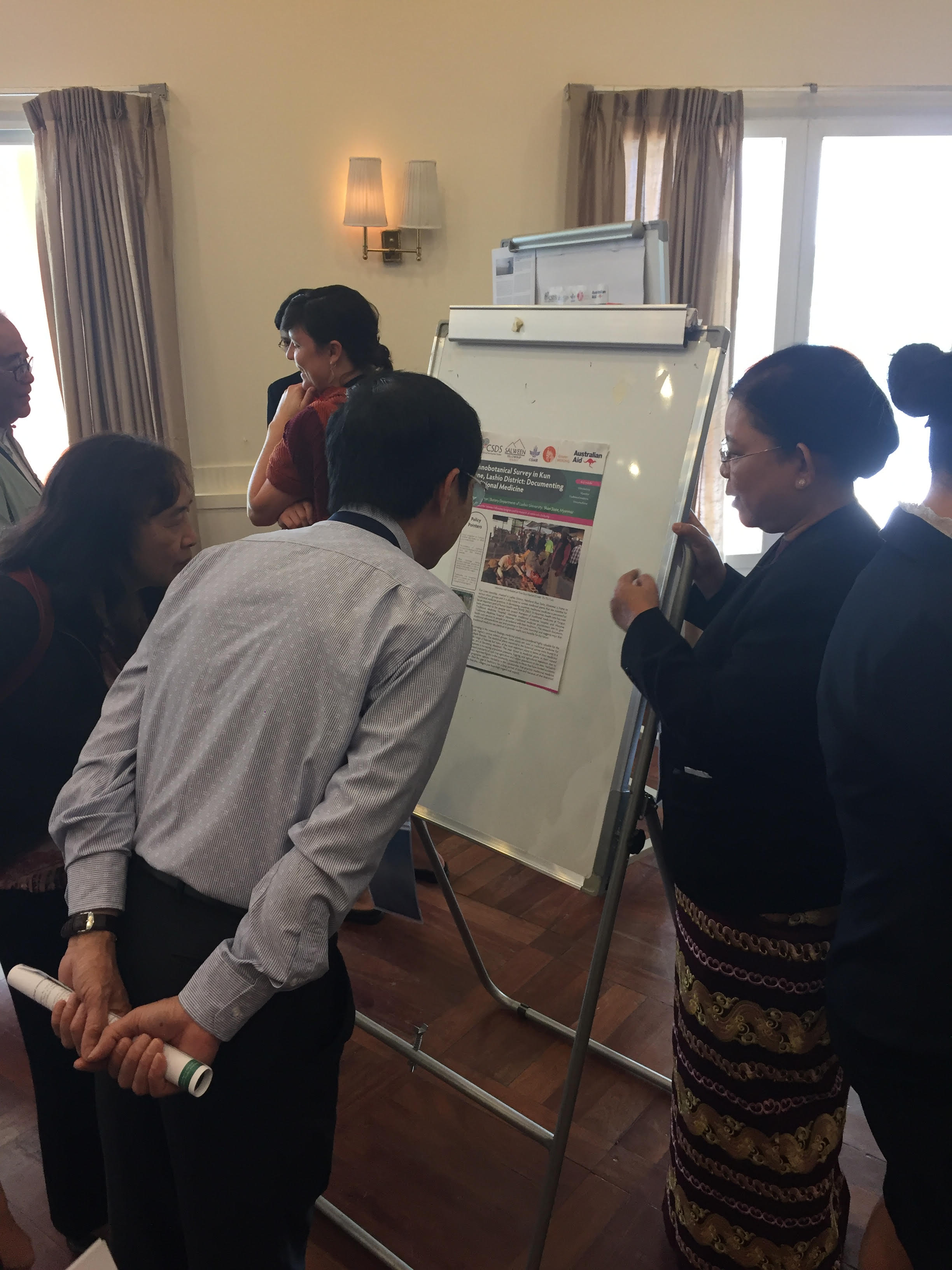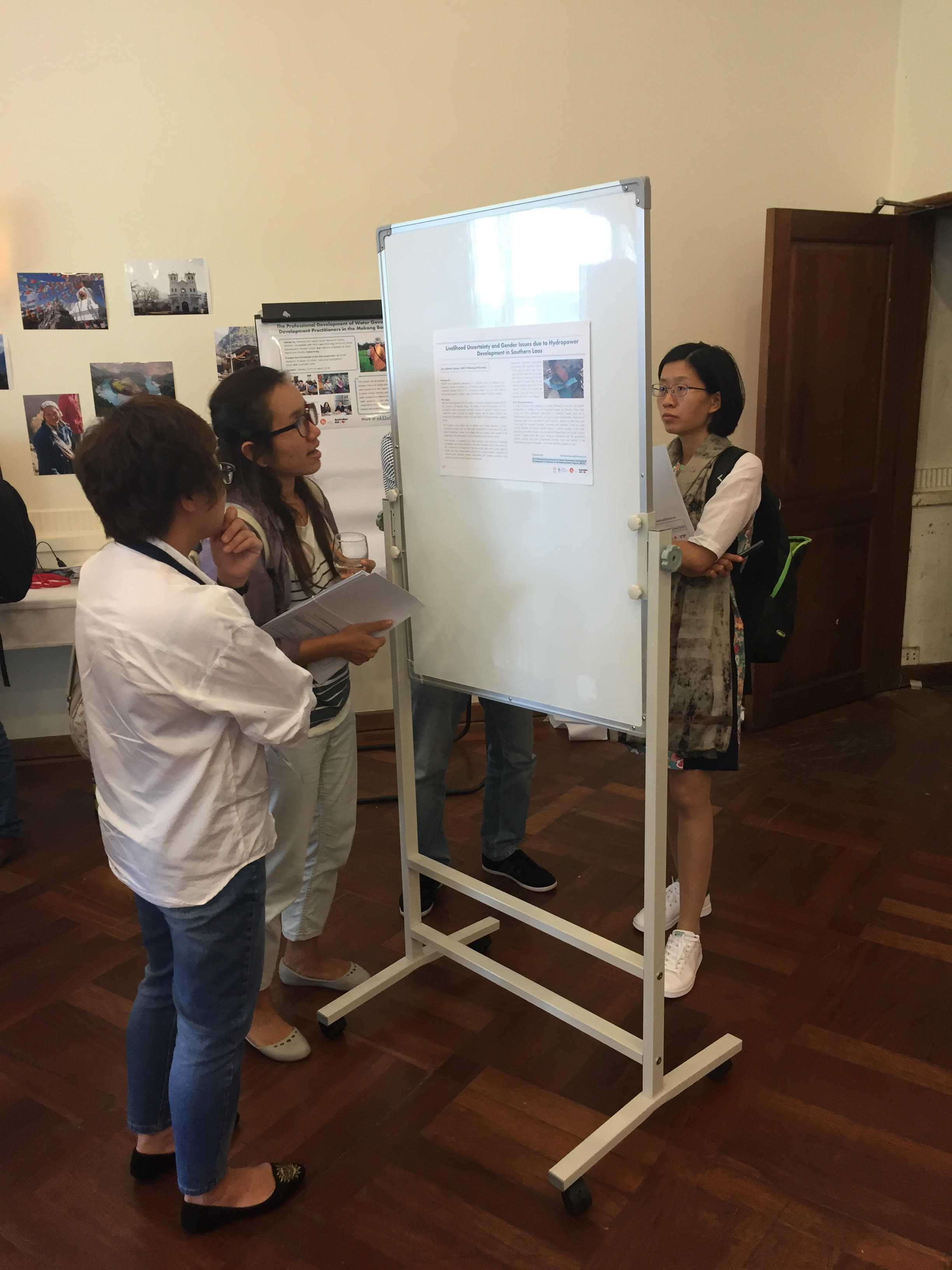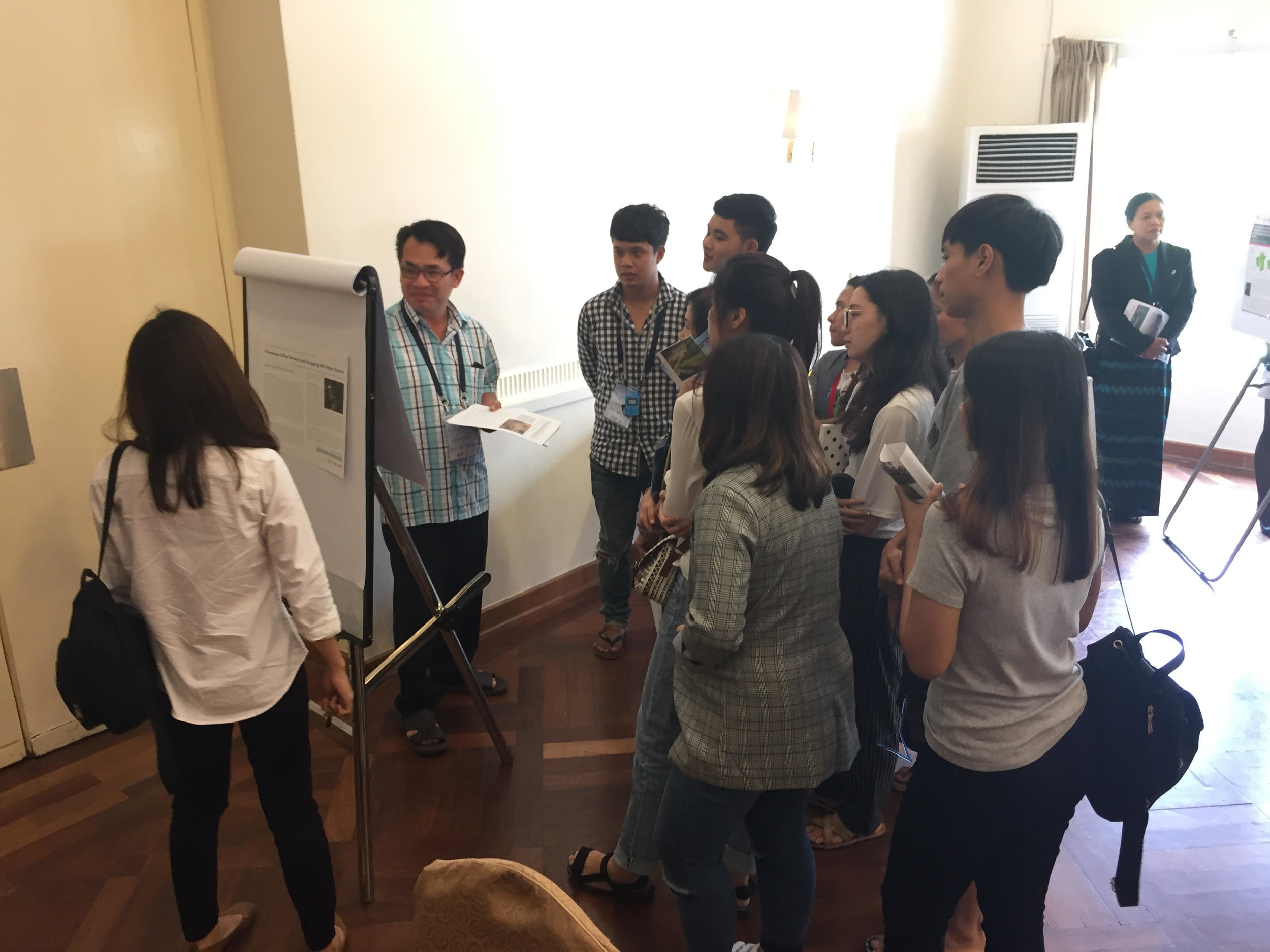WORKSHOP: Cultivating Connections: Just Futures Mekong Fellows at the 'Young Seed for the Future' Festival
/By Yu Yin, Fellowship Coordinator, Center for Social Development Studies CSDS
As the global community seeks solutions to mitigate climate change and achieve food security, events that emphasize sustainability and collaboration are more vital than ever. One such inspiring gathering was the 25th "Young Seed for the Future" Festival, held from January 23 to 25, 2025, in Yasothon Province, Thailand. This festival provided a unique opportunity for the five Just Futures Mekong Fellows—a group of passionate changemakers from China exploring civil society and sustainability across the Mekong region—to engage with sustainable agricultural practices, build meaningful connections, and gain insights from grassroots initiatives. This marked their first activity following their welcome orientation.
Photo: Just Future Mekong Fellows with Mr. Charin Thongsuk, Governor of Yasothon Province. Credit: Yu Yin
A Festival with Purpose
Organized by the Alternative Agriculture Network, the Sustainable Agriculture Foundation, and Bio-Thai, the Seed Festival is more than an annual event. It is a celebration of seeds, local knowledge, genetic resources, and food sovereignty — the cornerstones of sustainable agriculture and food security.
This year’s festival was particularly significant, expanding its regional reach to include participants from Laos, Myanmar, Cambodia, and Thailand, along with the Just Futures Mekong Fellows from China. Under the theme "Young Seed for the Future," the event emphasized the importance of regional and intergenerational collaboration in agriculture. It inspired young leaders, farmers, and agricultural communities to build resilient food systems in response to climate change and other pressing challenges.
The festival opened with heartfelt addresses from Mr. Charin Thongsuk, Governor of Yasothon Province, and Boonsong Matkhao, Director of the Northeastern Alternative Agriculture Network. Their speeches underscored the festival’s mission: to promote sustainable agricultural practices, secure and diversify seeds, and foster meaningful regional connections.
Immersive Experiences for the Fellows
The three-day festival offered the Fellows a wealth of hands-on experiences that went beyond traditional learning. Through engaging activities, they explored the interplay between traditional agricultural knowledge, innovation, and sustainability. Highlights included:
Knowledge Sharing Sessions: Expert farmers led discussions on climate-resilient rice seed cultivation, innovative agricultural practices, community-based genetic resource management, and strategies for protecting local plant varieties.
Food and Vegetable Tasting: Participants sampled locally grown teas, fruits, liquors, tomatoes, and rice, showcasing the flavors, textures, and nutritional benefits of organic produce.
Seed Swap: Farmers exchanged over 100 varieties of vegetable, fruit, and rice seeds, with fresh produce like pumpkins and melons shared during the event.
Farmers’ Market: Featuring over 60 vendors, the market highlighted local agricultural heritage with fresh produce, coffee, herbal goods, and crafts, offering Fellows a chance to support small-scale farmers and learn about sustainable farming innovations.
These activities allowed the Fellows to witness firsthand how farmers address climate adaptation through seed preservation and innovative farming practices. They also gained a deeper understanding of the critical role NGOs and community networks play in supporting and connecting rural communities, fostering knowledge exchange, and driving behavior change.
Photo: Seed Swap at the Seed Festival, Credit: Yu Yin
Photos: Farmers’ Market at the Seed Festival, Credit: Yu Yin
The Power for Change
The Fellows had the chance to speak with the festival’s lead organizer, who shared the story of its origins 25 years ago. The festival was born out of two major challenges:
The Green Revolution: In the 1980s, the government promoted hybrid seeds, chemical fertilizers, and pesticides as symbols of modernization. Initially, farmers resisted, but government propaganda promising higher yields and profits, coupled with programs that exchanged traditional seeds for hybrids, led to widespread adoption. Over time, this shift reduced seed diversity.
Modern Rice Mills: The introduction of modern rice mills, which only accepted rice of specific sizes, further discouraged the cultivation of diverse rice varieties.
These changes severely impacted seed diversity, but the consequences soon became apparent. Farmers faced rising debt and health issues, prompting rural development NGOs and local communities to analyze the root causes. They recognized the importance of seed diversity and traditional farming techniques in ensuring sustainable agriculture. This realization sparked the creation of the Seed Festival as a platform to advocate seed sovereignty and promote diverse seed varieties essential for climate resilience.
The urgency of seed sovereignty grew even stronger when free trade agreements and intellectual property rights began to affect Thailand’s iconic Jasmine rice. The festival has since become a powerful movement to reclaim control over seeds, protect traditional farming practices, and empower farmers to preserve their agricultural heritage.
Photo: Fellows with leaders from the Sustainable Agriculture Foundation. Credit: Yu Yin.
Connecting Across Borders
One of the festival’s achievements was its ability to foster regional connections. The Just Future Mekong Fellows joined farmers, researchers, and civil society leaders from Laos, Myanmar, Cambodia, Thailand, and beyond to share knowledge, exchange ideas, and build relationships. This cross-border collaboration, driven by shared challenges and aspirations, exemplifies the cooperation needed to address regional food security and climate resilience collectively.
Through dialogues with local farmers, the Fellows gained a deeper appreciation for the importance of preserving traditional knowledge while embracing innovation. At the heart of these conversations was the recognition that seeds—symbols of cooperation and adaptation—hold the potential to empower future generations and transform agricultural systems sustainably.
Photo: Fellows having dinners with participants from Myanmar. Credit: Mai Xueying
Charting a Just and Sustainable Future
For the Just Future Mekong Fellows, the "Young Seed for the Future" Festival was more than a learning experience — it was a source of inspiration and motivation. Their journey to Yasothon Province marked the beginning of their exploration of Thai civil society and sustainability, laying a strong foundation for understanding the strengths and struggles of Thai rural communities in navigating the challenges of the modern agricultural sector.
As the Fellows continue their journey across Thailand and the Mekong region, the lessons from the festival will serve as a cornerstone for their future endeavors. Events like this highlight the power of collaboration, community, and culture in achieving sustainable solutions.
In a world facing complex agricultural and environmental challenges, the message from Yasothon Province is clear: the seeds we plant today—both literally and metaphorically—will shape the future we cultivate tomorrow. By fostering regional cooperation and embracing grassroots knowledge, initiatives like the Seed Festival inspire hope for a more resilient, equitable, and sustainable future.





